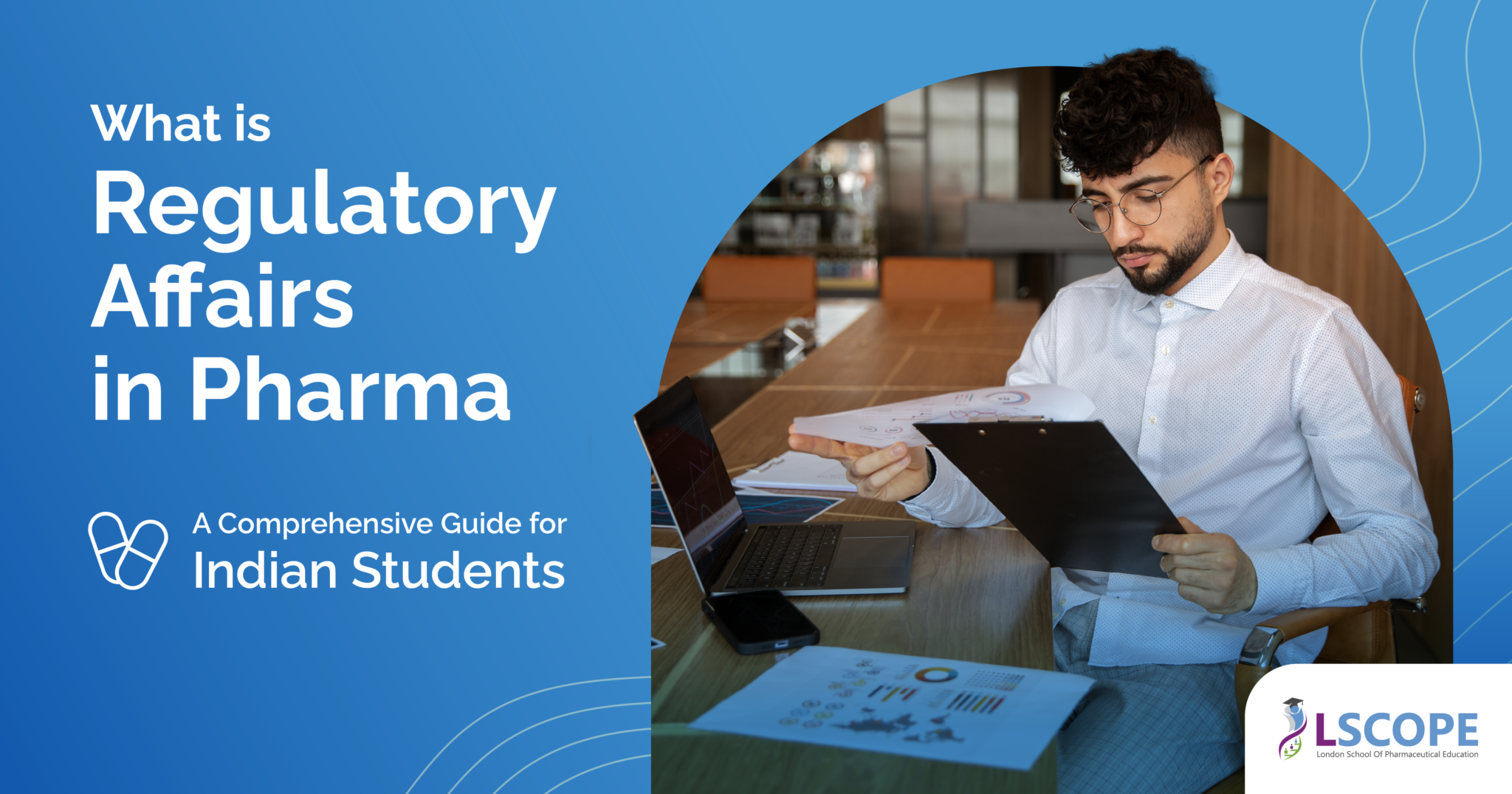Introduction
Regulatory affairs play a pivotal role in ensuring medicinal products’ safety, efficacy, and quality in the rapidly evolving pharmaceutical landscape. For aspiring professionals in India’s burgeoning pharmaceutical sector, understanding the intricacies of regulatory affairs is crucial. This comprehensive guide elucidates the fundamental aspects of regulatory affairs in pharma, its historical context, objectives, and career prospects, explicitly tailored for M.Pharm, B.Pharm, biotech, and life science students in India.
For more detailed information on specific aspects of regulatory affairs, please explore our related articles:
- Regulatory Affairs Courses: Paving the Way for a Successful Career in India
- The Evolving Role of Regulatory Affairs Professionals in the Indian Pharmaceutical Industry
- Navigating the Drug Development Process: An Indian Regulatory Perspective
- Medical Device Regulatory Affairs: Ensuring Safety and Compliance in India
- Global Regulatory Strategy: Opportunities for Indian Professionals in International Markets
Regulatory Affairs Definition
Regulatory affairs in the pharmaceutical industry encompasses the gamut of activities involved in developing, approving, and maintaining pharmaceutical products within regulatory frameworks. It serves as the critical interface between pharmaceutical companies and regulatory authorities, ensuring compliance with laws and regulations governing drug development, manufacturing, and marketing.
Historical Overview of Regulatory Affairs
Significant milestones mark the evolution of regulatory affairs in pharmaceuticals:
- 1940s: Enactment of the Drugs and Cosmetics Act in India
- 1960s: Establishment of the Central Drugs Standard Control Organization (CDSCO)
- 1970s: Introduction of Good Manufacturing Practices (GMP) guidelines
- 1980s: Emergence of regulatory affairs as a distinct profession
- 1990s-2000s: Harmonization efforts and adoption of ICH guidelines
- 2010s-present: Focus on digital submissions and global regulatory strategies
This progression reflects the increasing complexity of pharmaceutical products and the growing emphasis on patient safety and product efficacy.
Objectives of Regulatory Affairs
The primary objectives of regulatory affairs in the pharmaceutical industry include:
- Ensuring compliance with regulatory requirements
- Facilitating timely product approvals
- Maintaining product licenses
- Providing strategic regulatory advice
- Managing product lifecycle from a regulatory perspective
- Safeguarding public health through rigorous regulatory oversight
Drug Regulatory Affairs
Drug regulatory affairs focuses specifically on the regulatory aspects of pharmaceutical products. Key responsibilities include:
- Developing regulatory strategies for new drug applications
- Preparing and submitting Investigational New Drug (IND) applications
- Compiling and submitting New Drug Applications (NDAs) or Marketing Authorization Applications (MAAs)
- Managing post-approval changes and maintenance activities
Medical Device Regulatory Affairs
While distinct from drug regulation, medical device regulatory affairs share similar principles. It involves:
- Classification of medical devices based on risk
- Preparing regulatory submissions for device approvals
- Ensuring compliance with quality management systems
- Managing post-market surveillance activities
Role of Regulatory Affairs in the Pharmaceutical Industry
Regulatory affairs professionals play a multifaceted role:
- Strategic advisors in product development
- Liaisons between companies and regulatory authorities
- Compliance managers ensure adherence to regulations
- Risk assessors in product safety and efficacy
- Regulatory intelligence gatherers and interpreters
Career Prospects in Regulatory Affairs
The pharmaceutical industry offers diverse career opportunities in regulatory affairs:
- Regulatory Affairs Associate
- Regulatory Affairs Manager
- Regulatory Strategy Director
- Regulatory Medical Writer
- Regulatory Intelligence Analyst
Regulatory Affairs Salary
Salaries in regulatory affairs are competitive and vary based on experience and qualifications. In India, entry-level positions typically start at ₹3-5 lakhs per annum, while senior roles can command salaries upwards of ₹20 lakhs per annum.
Education and Qualifications
M.Pharm in Regulatory Affairs
An M.Pharm in Regulatory Affairs is a specialized postgraduate degree tailored for pharmacy graduates. It covers:
- Regulatory aspects of drug development
- Regulatory writing and documentation
- Good Manufacturing Practices (GMP)
- Clinical trial regulations
- Pharmacovigilance
MS in Regulatory Affairs
An MS in Regulatory Affairs is a master’s level program suitable for graduates from various scientific backgrounds. Key areas of study include:
- Global regulatory strategies
- Regulatory compliance and ethics
- Regulatory aspects of product development
- Quality management systems
- Regulatory intelligence and policy
PhD in Regulatory Affairs
A PhD in Regulatory Affairs is an advanced research degree for those aiming for leadership positions. It involves:
- In-depth research on regulatory challenges
- Advanced study of global regulatory frameworks
- Development of innovative regulatory strategies
- Contribution to regulatory policy and guidelines
Regulatory Affairs Certificate
Regulatory affairs certificate programs offer focused, short-term training for professionals looking to enter the field or enhance their existing skills.
Global Regulatory Landscape
Regulatory affairs professionals must navigate a complex global landscape:
- CDSCO regulations in India
- FDA regulations in the United States
- EMA guidelines in the European Union
- WHO prequalification process for developing countries
Understanding these diverse regulatory frameworks is crucial for successful global product launches and maintenance.
Future Trends in Regulatory Affairs
The field of regulatory affairs is constantly evolving. Emerging trends include:
- Increased focus on personalized medicine regulations
- Integration of artificial intelligence in regulatory processes
- Emphasis on real-world evidence in regulatory decision-making
- Harmonization of global regulatory requirements
Conclusion
Regulatory affairs in pharmaceuticals is a dynamic and critical field that ensures the safety and efficacy of drugs and medical devices. For Indian students aspiring to enter this field, a strong foundation in regulatory sciences and an understanding of global regulatory landscapes is essential. Whether considering an M.Pharm, MS, or PhD in regulatory affairs or looking to start with a regulatory affairs certificate, the field offers diverse and rewarding career opportunities in India’s growing pharmaceutical sector.
As the industry continues to evolve, the importance of skilled regulatory professionals will only grow. By investing in a quality regulatory affairs education and staying abreast of industry trends, you can position yourself at the forefront of this crucial discipline in the pharmaceutical industry.


